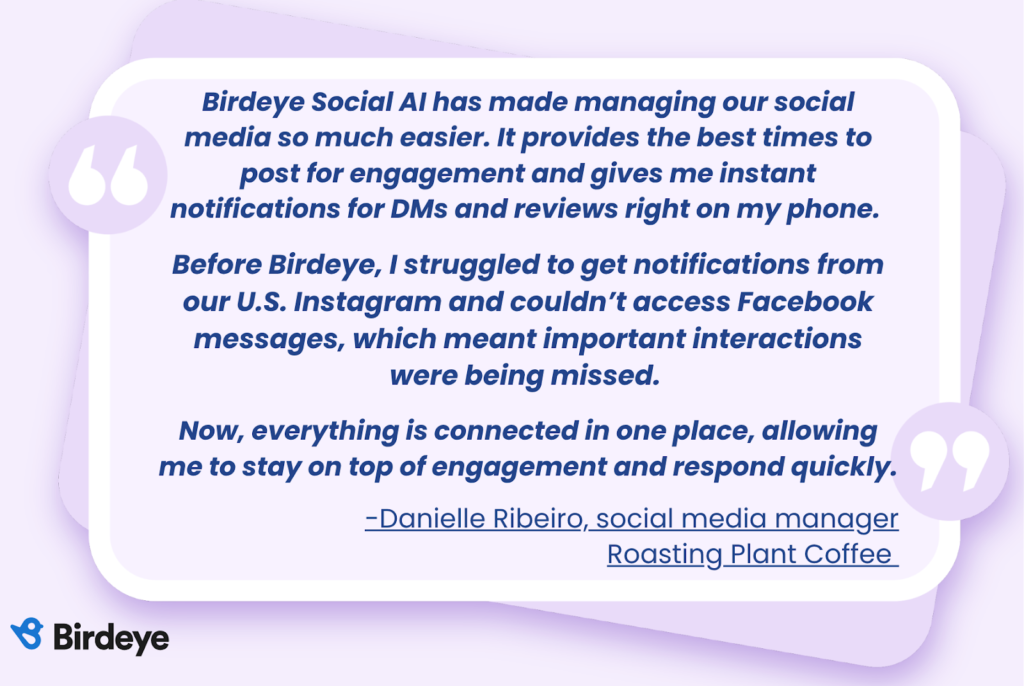Nearly every person in the UK is online daily, making social media far more than a passing distraction; it’s how we chat, share local news, discover new shops, debate issues, and sometimes even shape national trends.
From WhatsApp group invites to viral TikTok recipes, social platforms influence what’s in our shopping baskets, who we follow in Parliament, and how we keep in touch with long-distance mates.
But over the past year, the buzz has shifted. Brits are spending less time doomscrolling and more time seeking meaningful digital moments. As per Statista, the average British adult now spends 1 hour and 37 minutes a day on social media—a clear drop from previous years, as concerns about mental health, body image, and social pressure grow.
For many, social platforms remain lifelines, but the way we use them is changing rapidly.
This blog breaks down the most recent social media statistics in the UK and uncovers the habits, influences, and realities driving change.
Ready for a closer look at who Britain’s social media users actually are, and what their choices say about life across the country?
Table of contents
- How many people use social media in the UK?
- Most popular social media platforms in the UK
- How much time do people spend on social media in the UK?
- What drives social media usage and engagement in the UK?
- Social media advertising in the UK: Spend, reach, and results
- Powering smarter social media: Birdeye Social AI
- Frequently asked questions about social media statistics in the UK
- Birdeye helps you win in social media management in the UK
How many people use social media in the UK?
The UK is often at the forefront of digital trends. In early 2025:
- 54.8 million active social media identities exist nationwide, representing roughly 79% of the population.
- Almost 98% of Gen Z and Millennials use at least one social platform regularly.
- The average UK adult now checks social media multiple times daily. Still, most people actively use about 6 different platforms monthly, from stalwarts like WhatsApp and Facebook to upstarts like Reddit and Threads.
- There’s an almost perfect male–female split: 49.9% female and 50.1% male.
- Regional differences matter too. London and the South East lead in digital adoption, but every region shows strong engagement, including rural and remote areas where online groups often replace local pubs for community chatter.
Despite a dip in user growth—down 2.5% year-on-year—the market hasn’t shrunk, it’s just become more discerning. Brits are digital natives, but they want smarter, safer, and more uplifting social spaces.
Understanding how and why people connect is key to the UK’s social media future. Next, let’s see which platforms keep us scrolling and sharing.
Birdeye helps you win social media management in the UK
Want to see the impact of Birdeye on your business? Watch the Free Demo Now.
Most popular social media platforms in the UK
The social media landscape in the UK is dynamic, with platforms rising and falling in popularity as trends shift and user behaviour evolves. Understanding which social media sites dominate in 2026 helps businesses and individuals create a smart marketing plan and engage more effectively with their target audience.
Here’s what working:
- WhatsApp holds the top spot as the UK’s most popular social platform. 79% of the UK’s internet users are monthly active users of WhatsApp, making it a daily essential for communication in nearly every age group.
- Facebook retains a massive user base, used by 73% of internet users. Despite media chatter about its decline, it remains core for community groups, local events, and staying connected across generations. This makes Facebook the most important platform for reaching older generations and those interested in hyperlocal news content.
- Instagram attracts 60% of UK internet users each month, continuing to distinguish itself with photo, video, and Reel content that draws in younger people, influencers, and brands. Instagram ranks as a popular social media platform among Gen Z and Millennials, leading for social media engagement and product discovery.
- YouTube nearly matches Instagram with a 59.7% reach, proving that visual content dominates UK online behaviour. YouTube remains a hub for informative content, entertainment, how-tos, and music, appealing to all age groups, with unique value for average daily time spent.
- TikTok is the breakout star for younger age groups, with use continuing to surge among Gen Z and Millennials. The average active user now spends more than 49 hours per month on TikTok, far surpassing time spent on other platforms and indicating the app’s growing dominance for engaging content and building relationships online.
- Reddit has now overtaken X (formerly Twitter) in the UK to become the fifth most popular social platform. This signals a shift in consumer behaviour towards discussion-based communities and interest-driven networking over celebrity discourse.
- Pinterest and LinkedIn are on the rise, with Pinterest users up to 15.5 million and LinkedIn reporting a 15% increase in ad reach. Both serve niche audiences: Pinterest for shopping inspiration and visual discovery, LinkedIn for professional networking and B2B social media marketing.
- Facebook Messenger and other platforms provide messaging, group calls, and business integrations. Messenger, in particular, supports direct outreach for brands, complementing Facebook’s main feed.
These user bases reflect millions of active users, more than half the UK’s total population, who tap these platforms for everything from tailored content to shopping, entertainment, and brand engagement. The spread also highlights why marketing strategies now involve multiple social networks and platform-specific creative.
The range of platforms used means the average person has a unique combination of social accounts, often spanning up to six or more different platforms depending on age, interests, and personal preferences.
This diversity also reveals that social media users in the UK are highly adaptable. Brands, creators, and consumers are all shaping and being shaped in constant motion.
Next, we’ll break down how much time the UK actually spends on these networks and what that reveals about shifting social media usage patterns.
How much time do people spend on social media in the UK?
In 2025, the average daily time spent on social media in the UK is 1 hour and 37 minutes. This marks a drop of 11% compared to 2023, reflecting changes in social media usage and the desire for smarter, more meaningful engagement across social networks.
Most internet users now interact intentionally with social media platforms instead of consistently scrolling through feeds, focusing on tailored content and informative content that adds value to their day.
- UK internet access remains near-universal, with 97% of the population regularly online.
- UK social media users typically engage with about 6 different platforms every month, showing that people value multiple sources of news content, entertainment, and community.
- Gen Z and Millennials lead in average daily usage, often spending more than 2 hours a day—blending product discovery, messaging, video consumption, and social media engagement into their routines.
- Many internet users split their time across popular social media platforms such as TikTok, Facebook, Instagram, YouTube, and Reddit, with TikTok users logging 49 hours monthly on the app, more than any other platform.
This shift means brands and marketers in the UK must rethink their strategies. Instead of relying on sheer volume, the focus now is on engaging content, smart decisions, and optimising the average time spent with quality social media statistics, tailored messaging, and platform-specific creativity.
Next, we’ll explore what drives this engagement and how consumer behaviour is changing in the social media landscape.
What drives social media usage and engagement in the UK?
Social media usage in the UK is shaped by several factors that reflect broader consumer behaviour, cultural interests, and changing digital priorities.
Today’s social media users are looking for platforms that do more than just entertain; they want to connect, stay informed, discover new products, and make smart decisions.
- The top reason for social media usage among UK users is keeping in touch with friends and family. Nearly half of all active users cite this as the main motivation, highlighting that social networks support building relationships and maintaining local connections.
- Over 52% of UK adults now use social media as a source for news content, significantly up from previous years. For many internet users, social media platforms have become their primary way to access daily headlines and public debates.
- Product discovery is rising fast: 44% of British social users follow brands on social platforms to explore new products or services, and more than half have purchased directly through social media advertising or shoppable content. This climbs to nearly three-quarters for younger people under 45.
- Entertainment and engaging content drive usage for 42% of UK social users, with short-form video formats, memes, and real-time stories dominating across TikTok, Instagram, and Facebook.
- Social media marketing is increasingly important. Brands use social platforms for everything from influencer marketing and consumer research to participating in online communities for authentic engagement with their user base.
- Mobile use reigns supreme: 90% of social media interactions now happen on mobile devices, underlining the new norm for on-the-go engagement and smart decisions in platforms and advertising strategies.
Age group, region, and interest all make a difference. While Gen Z spends more time creating and consuming tailored content and building relationships online, older generations focus on news and messaging through social media platforms like Facebook Messenger, WhatsApp, and Facebook itself.
This mix of motivations, combined with the UK’s diverse social media landscape, means brands must refine their marketing plans and measure key statistics in order to engage communities across different platforms. Authenticity, creative disruption, and personalisation remain at the heart of every successful campaign.
Next, we’ll look at social media advertising statistics that reveal how brands and marketers are capitalising on these usage patterns.
Social media advertising in the UK: Spend, reach, and results
Social media advertising statistics in the UK reveal a rapidly growing market with record-breaking investment and evolving consumer behaviour.
The social media marketing continues to shift, as brands try new formats, experiment with AI, and focus on platform-specific engagement.
- Annual social media advertising spend has climbed to £9.02 billion in 2025, up 13.8% year-on-year.
- Influencer marketing accounts for £930 million, growing alongside new social commerce and shoppable features across platforms.
- Mobile users now make up 92.4% of all social media ad clicks, showing that engaging content and vertical video are crucial for conversion.
- Facebook remains the preferred platform for paid social ads, with 89% of marketers using it. Instagram’s Stories ads drive a 29% higher click-through rate than feed ads.
- TikTok users in the UK spend an average of 95 minutes a day on the app, making it uniquely effective for video ads and reaching younger people.
- Shoppable posts and social commerce deliver a 22% increase in cart conversions, with millennials and Gen Z showing particularly strong results.
- The average ROI across all social platforms in 2025 stands at £5.28 per £1 spent, outperforming traditional digital and print marketing channels.
- Brands using AI-optimised bidding and tailored content see a 14% boost in social media engagement and conversion rates versus manual campaigns.
- Cross-platform retargeting campaigns now deliver up to 3.3 times higher ROI than those limited to a single platform, underscoring the value of a multi-channel marketing plan.
- Companies investing in social media advertising statistics and analytics report better results when targeting specific age groups, interests, and regions. This proves that smart decisions come from accurate data.
Social media advertising in the UK leads global trends, with businesses of all sizes using new platforms, informative content, and advanced analytics to capture attention and drive real business growth.
Next, we’ll spotlight how Social AI tools like Birdeye help brands scale their campaigns effectively.
Powering smarter social media: Birdeye Social AI
For brands seeking to stand out in the UK’s social media landscape, Birdeye’s Social AI Agents create and optimise brand-aligned content across all major social media platforms, helping businesses reach and engage active users with tailored content that drives results.
It helps the brand with:
- Multi-location publishing and bulk scheduling make managing thousands of posts simple, while AI-powered content generators deliver personalised, hyperlocal posts in your brand voice for every region and demographic segment.
- Smart workflows let teams review, approve, and schedule tailored image and copy, ensuring every social platform keeps to the highest standards for brand tone and compliance.
- Competitive analytics and reporting give you a clear view of your brand’s social media statistics, benchmarking engagement, reach, and audience growth across the UK.
- The platform also enables mobile-first publishing, so teams remain responsive and agile, no matter where they’re working.
- With an intuitive dashboard, brands can monitor all their key statistics, manage social users, and use data insights for smarter marketing decisions.

Birdeye transforms social media management from a series of manual tasks into a streamlined, AI-powered engine for deeper loyalty, more active users, and actionable campaign analytics.
For UK brands wanting to build tailored content, boost engagement, and scale to new heights, Birdeye is the essential social partner.
Frequently asked questions about social media statistics in the UK
Short-form video, private groups, and AI-powered content are shaping digital habits. Authenticity and narrow-targeted ads are now more valuable than chasing viral reach.
Start by listening and engaging where your audience already gathers—Facebook Groups, Discord, and even LinkedIn communities. Focus on dialogue and exclusivity over follower numbers. Encourage participation and highlight user-generated content to deepen connections.
Organic reach has dropped, especially on Facebook and Instagram. To be seen, brands mix engaging organic storytelling with tailored paid campaigns. The most effective approach blends the two and enables meaningful, measurable engagement with social users.
AI now assists in everything from creating social media posts to personalising messaging and automating tasks. New tools predict what content will perform best, speed up campaign testing, and free up time for genuine audience engagement, making your marketing plan much smarter.
AI is streamlining content planning, guiding social listening, and analysing performance instantly. Forward-thinking brands use AI tools to publish at the best times, personalise messaging, and act on the latest statistics—freeing up more time for creative, human connection.
Birdeye helps you win in social media management in the UK
Relying on the latest social media statistics in the UK is essential for any brand, creator, or marketer wanting to get ahead. Every post, video, and interaction is an opportunity to grow your presence, but only if you understand the social media usage and active users behind the numbers.
To truly succeed, marketers must embrace experimentation, lean into micro-communities, and use the right blend of organic and paid campaigns, always reviewing what the stats say works for each age group, region, and interest.
This is where Birdeye makes a real difference. Birdeye’s AI-powered social platform lets you craft and schedule tailored content for every location and audience, and brings your entire marketing plan together in one intuitive dashboard.
With better analytics, smarter automation, and easy social media management across Facebook, Instagram, LinkedIn, and all popular social media platforms, Birdeye helps you turn raw data into deeper engagement, stronger relationships, and more impactful campaigns.

Originally published









